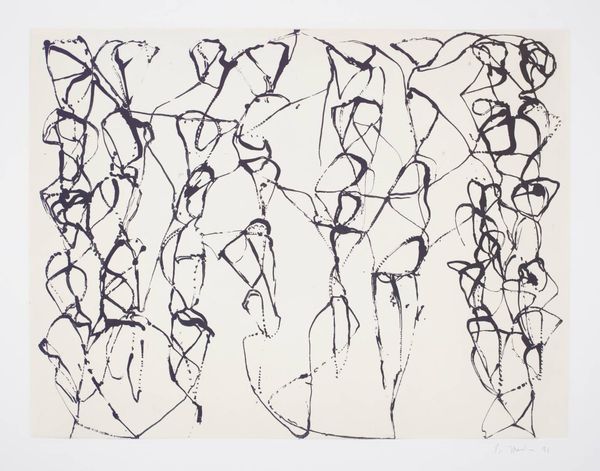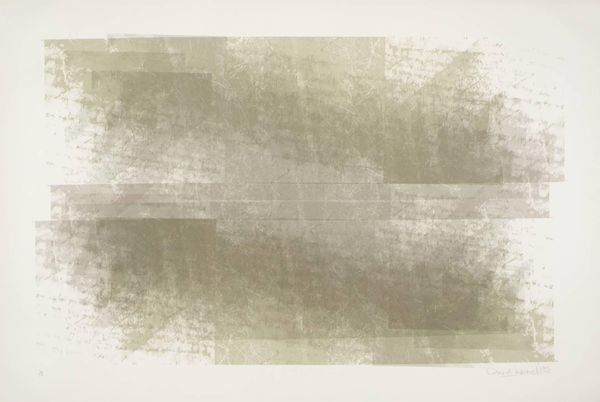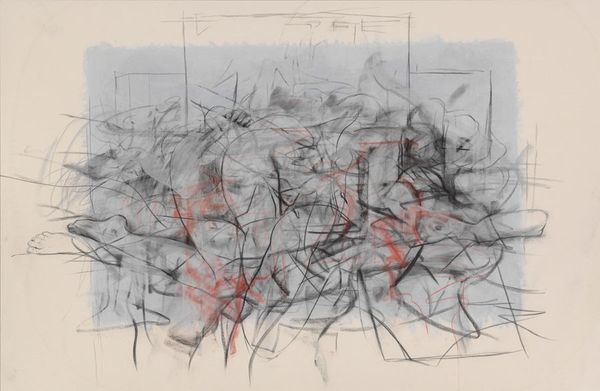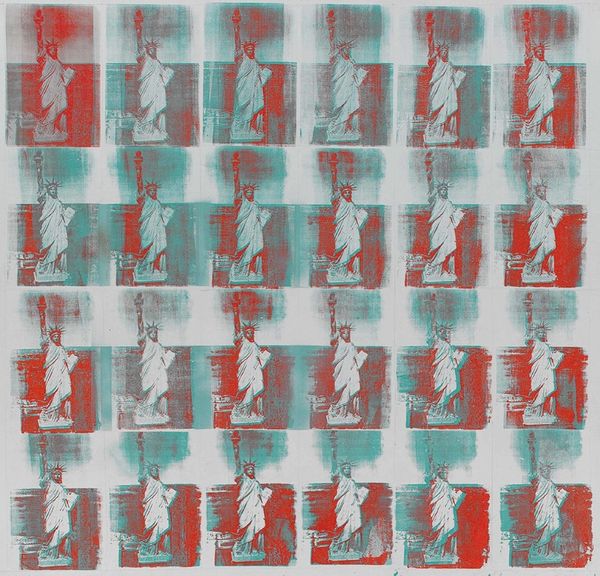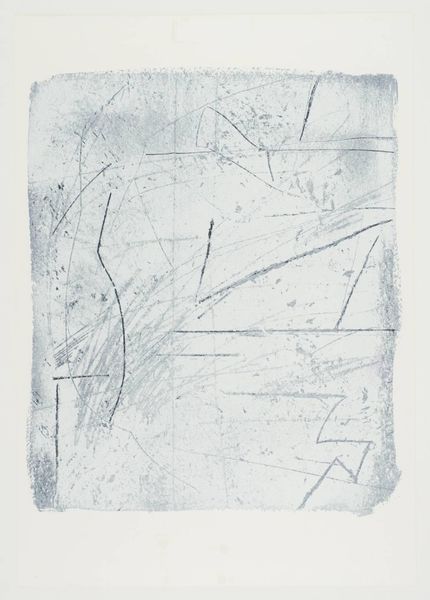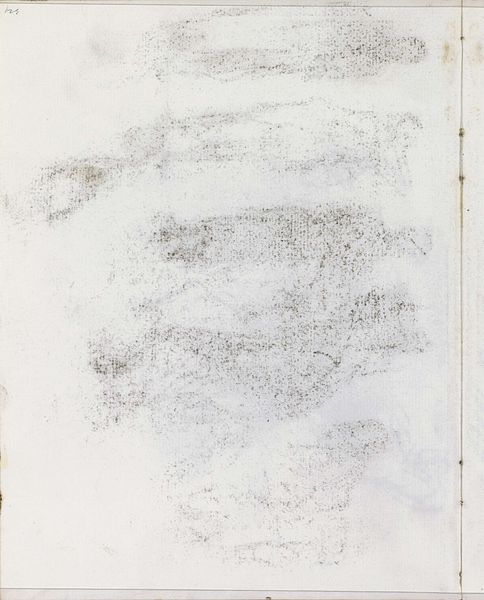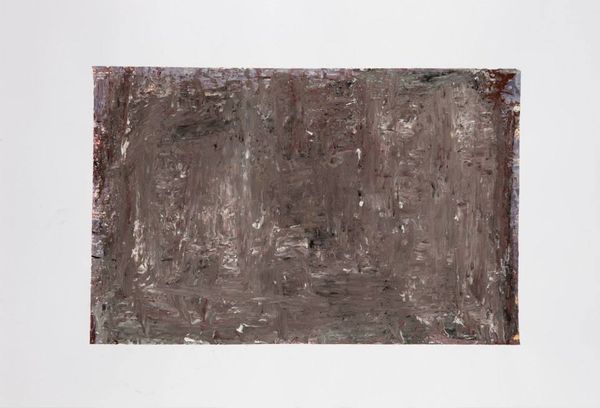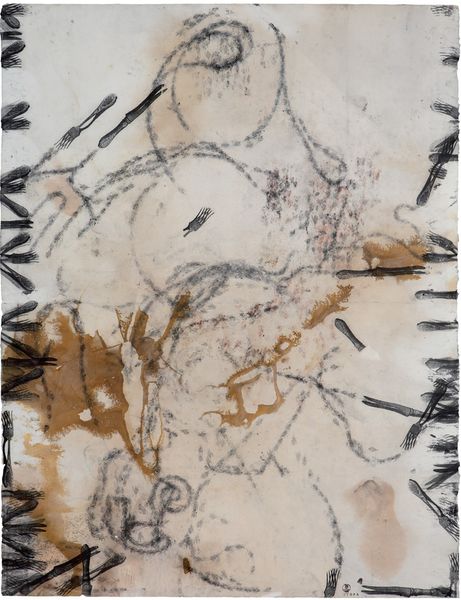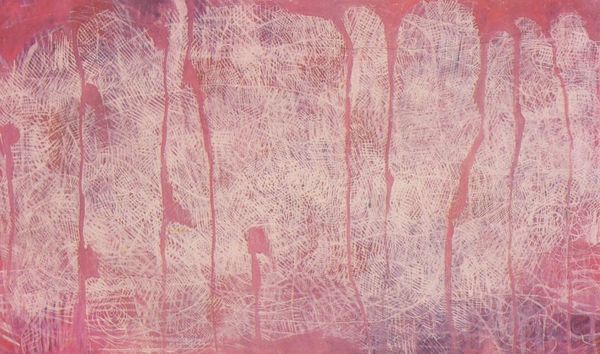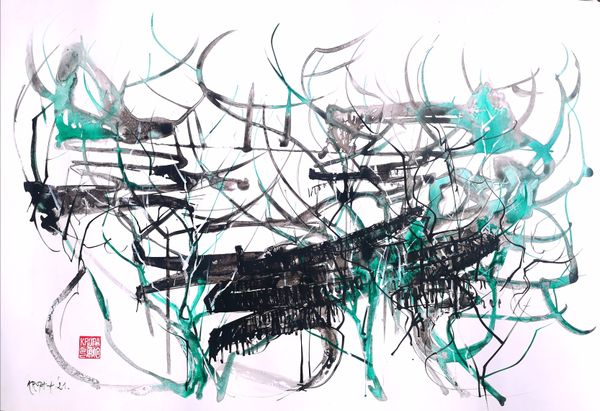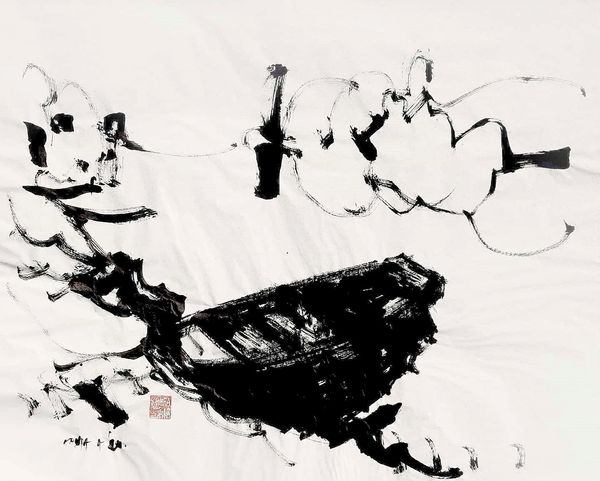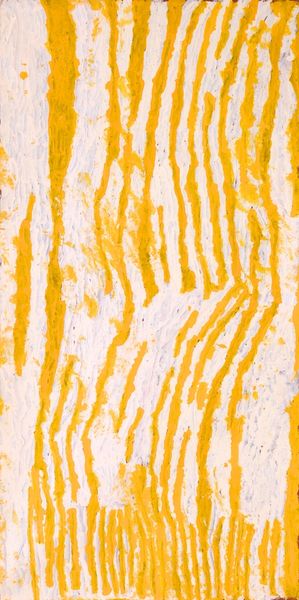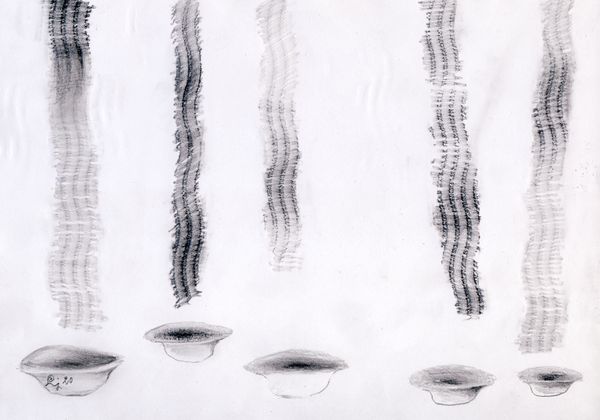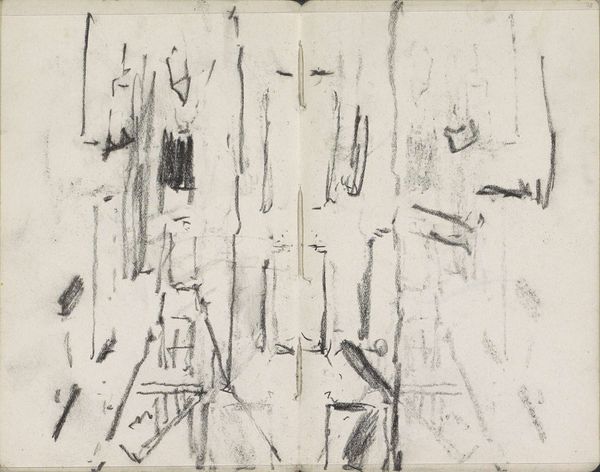
Dimensions: image: 500 x 566 mm
Copyright: © William Turnbull. All Rights Reserved, DACS 2014 | CC-BY-NC-ND 4.0 DEED, Photo: Tate
Editor: So, this is William Turnbull’s "Marching Figures," a print held at the Tate. There isn't a date associated with this piece. To me, it feels spectral, like ghosts in motion. What do you see in it? Curator: Oh, absolutely. Turnbull was deeply interested in ancient sculpture, those Cycladic figures, so this could be his take on the echo of humanity marching through time. The drips and smudges? They remind me of forgotten memories, like echoes in a cave. Editor: I like that, echoes of humanity. So it is less about individuals and more about collective movement. Curator: Precisely! Perhaps we are all just drops in a long stream. Editor: I never thought of it that way. Very cool.
Comments
tate 10 months ago
⋮
http://www.tate.org.uk/art/artworks/turnbull-marching-figures-p77470
Join the conversation
Join millions of artists and users on Artera today and experience the ultimate creative platform.
tate 10 months ago
⋮
From the late 1940s, when he lived in Paris, Turnbull created sculptures based on highly simplified human and animal forms. He said of this work: 'I wanted to make sculpture that would express implication of movement (not describe it), ambiguity of content, and simplicity.' In this print Turnbull depicts a figure, or possibly a group of figures, going through a series of movements. He may be referring to the first photographs of the figure in motion done in the 1880s by Eadweard Muybridge, as well as to the French painter Marcel Duchamp's celebrated exploration of the body in motion, Nude Descending a Staircase of 1912. Gallery label, August 2004
